Recently, the Centers for Disease Control and Prevention (CDC) published an analysis of a Salmonella outbreak linked to vegan cheese made from cashews. The 2021 outbreak linked to Jule’s cashew brie marked the second time since 2014 that illnesses in multiple states were linked to cashew cheese.
Does vegan cheese pose a food safety risk? If it’s made from nuts, it might.
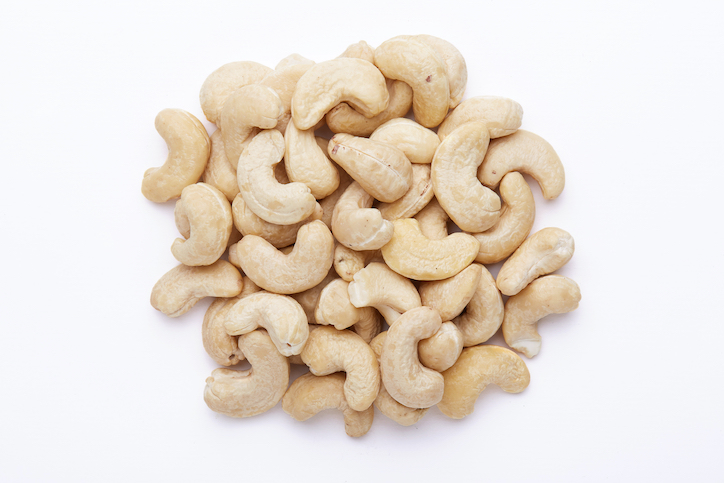
Cashews and Kill Steps
The CDC’s 2021 report on the Jule’s brie Salmonella outbreak states that whole genome sequencing tests on the Salmonella strain cultured from patients produced the same genetic “fingerprint,” meaning the patients were exposed to the same source of contaminated food. Investigators found this outbreak strain in samples of Jule’s cheese, in the facility where it was made, and in the specific lot of raw cashews used to make the cheese.
The CDC’s recent analysis of the outbreak states that U.S. Food and Drug Administration (FDA) investigators identified cashews as the ingredient that was the likely source of contamination and noted that no lethality treatment, or “kill step” such as pasteurization or irradiation was performed before cashew processing.
Similarly, a kill step was also omitted in the manufacture of The Cultured Kitchen cashew cheese linked to the 2014 Salmonella outbreak. Tests performed during that investigation revealed the presence of the outbreak strain in samples of the cheese collected from a patient’s home and in a batch of fermenting, raw, cashews collected from the facility where the product was made.
In the new report’s conclusion, researchers state, “The lack of a lethality treatment for component ingredients can increase the risk of contamination in products that are served ready-to-eat and perceived as safe by the public.” Yet, many cheeses, butters, and spreads made from nuts aren’t pasteurized.
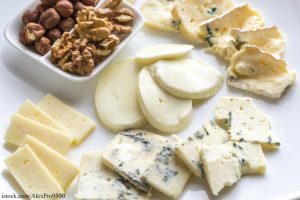
Related
Jules Cashew Brie Salmonella Outbreak: What Is Cashew Brie?
E. coli and Salmonella Outbreaks from Nuts, Nut Butters and Nut Cheese
Cashew Cheese Outbreak Ends with 17 Sick
Salmonella Outbreaks from Nuts
Outbreaks Linked to Products Made from Nuts are Common
Outbreaks linked to butters, spreads and cheeses made from nuts, seeds, and legumes are common. Between 2012 and 2022, 28 such outbreaks occurred worldwide, according to The Food Safety Department at the University of California- Davis. Of those, 16 occurred in the U.S. sickening hundreds of people. Tahini and peanut butter were the products most commonly linked to these outbreaks. Not coincidentally, they are also the most commonly consumed such products. And that leads to another key point in the CDC report.
Because the consumer base for cashew cheese is a fraction of the peanut butter fan base, outbreaks are more difficult to detect. The Salmonella strains in both cashew cheese outbreaks were extremely rare and that was the key factor in the detection and resolution of the outbreaks, CDC researchers said. That means illnesses stemming from cashew cheese contaminated with common Salmonella strains may be going undetected.
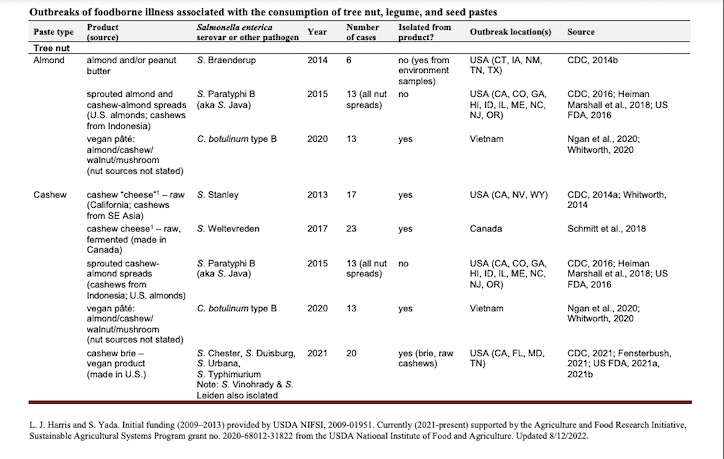
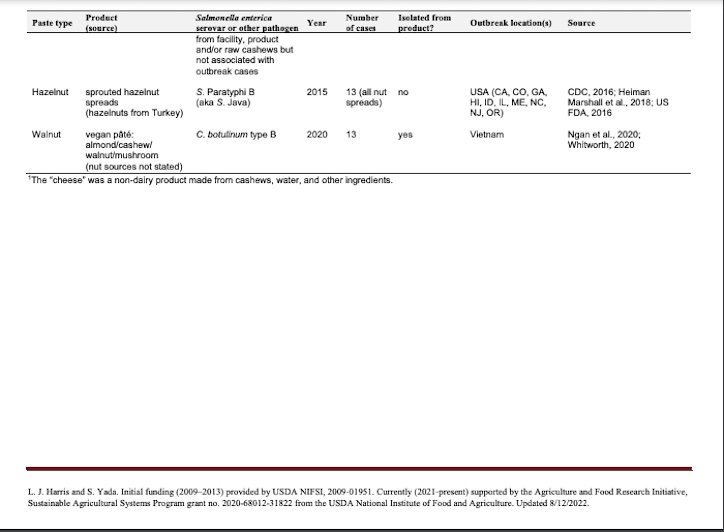
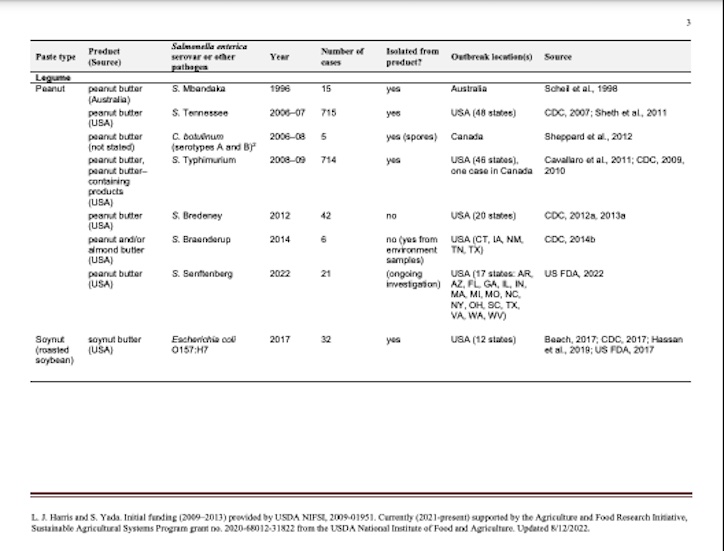
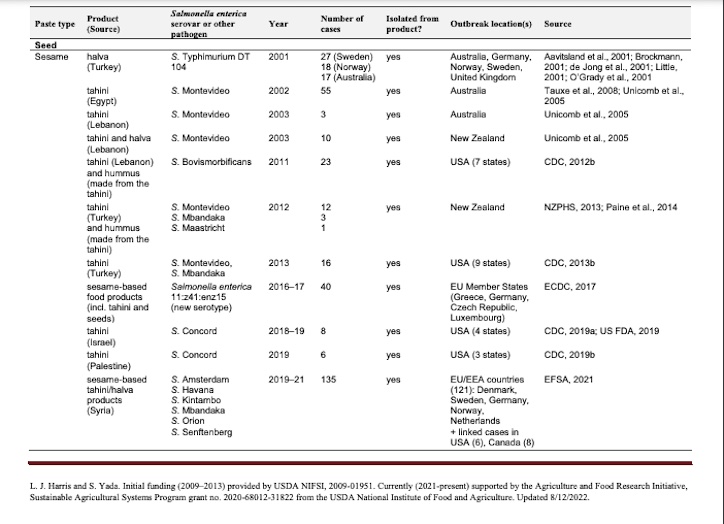
Not All Vegan Cheese is Made From Nuts
Vegan cheese is a growing segment of the non-dairy market. Some are made from cashews, others are made from potato starch, oat flour, or almond milk. But most of them aren’t pasteurized.
When we asked the FDA if these products are safe to eat and if pregnant women or other high-risk groups should avoid eating them, a spokesperson told us, “The primary ingredients and the manufacturing and processing of the finished products can vary; however, it’s the manufacturer’s obligation to ensure the product is safe, properly labeled, and packaged Please see the FDA’s draft guidance for industry. Ultimately, it is the responsibility of the facility to determine whether an identified hazard requires a preventive control in that facility, and the type of preventive control needed to ensure a safe product. The FDA recommends that pregnant women consult with their primary care physicians regarding their diets.”

If you have been sickened with a food poisoning infection, please contact our attorneys.




